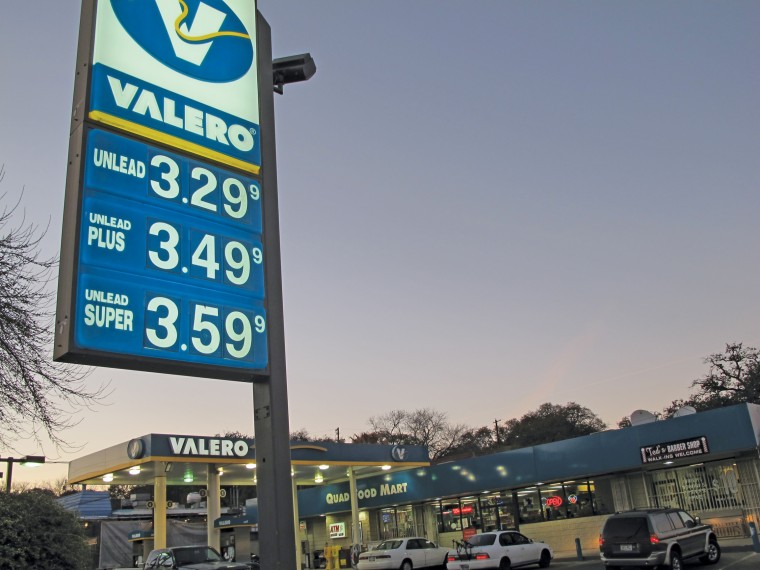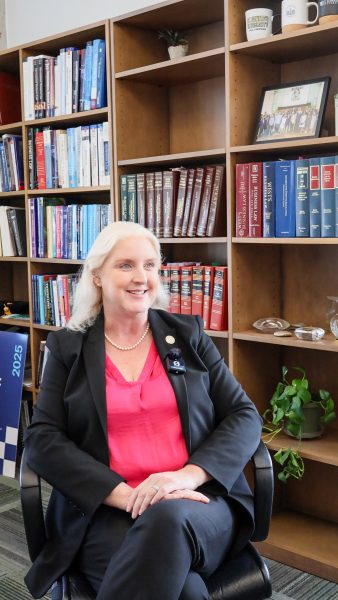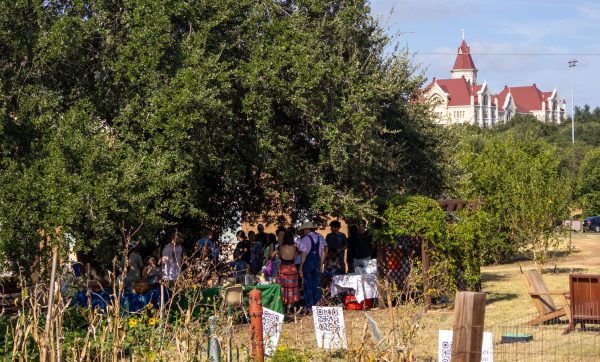Rising gas prices weigh on students at St. Edward’s
With gas costing more than $3 per gallon, the St. Edward’s University community is feeling the effects.
“I try to walk everywhere because everything is close together downtown,” freshmen Brenda Sanchez said.
Higher gas prices have also prevented Sanchez from taking the three-hour drive home as often as she likes.
“To go home to Houston, it costs $60 to $75,” Sanchez said.
Senior Estevan Labrado, who said he is somewhat concerned about rising gas prices, said that he only drives his car when he has to.
“I have been taking the bus more,” he said. “I don’t want to pay for gas.”
The average gas price for the Austin-San Marcos area is $3.45 per gallon as of March 28, according to AAA’s Fuel Gauge report.
Last year, gas prices for the Austin-San Marcos area were at $2.65 per gallon, indicating a 30 percent increase in cost from the previous year. The state average for Texas is $3.47 per gallon, which is approximately three percent lower than the national average. The state average increased 29 percent from last year’s average.
The Energy Information Administration, an agency within the United States Department of Energy that deals with statistics, predicts that gas prices will continue to increase in a report titled “Short Term Energy Outlook,” released on March 8.
“EIA projects gasoline prices to average $3.70 per gallon during the peak season (April through September) with considerable regional and local variation,” the report said.
The report also stated that there is a 25 percent chance the national monthly average price for gas could exceed $4 per gallon this summer.
It is at this price that Labrado said that he would stop driving entirely.
Professor William Zanardi, who teaches the course Ethics and Economics, explained some common perceptions that he has come across regarding the reasons for the increase in gas prices.
Zanardi said one of these prospective reasons is the recent political instability in oil-producing countries in the Middle East. He said some worry that a possible decrease in gas production in countries like Egypt and Libya could lead to shortages around the world and a concentration of the gas in the market in fewer hands, which could lead to less competition.
“Markets don’t like instability and uncertainty,” Zanardi said.
Zanardi said the initial reason for the increase in price could be due to speculation.
“People wonder what the market demand will be like in three, maybe six months from now,” he said. “This can increase prices.”
Zanardi said some people claim that the increase in gas prices is due to price gouging — a practice by which companies price their products unreasonably high, above the typical market rate that would otherwise prevail. Zanardi said that in some cases, people worry that gas prices may increase by a number of cents over a matter of hours.
“Price gouging makes some people suspicious,” Zanardi said.
Regardless of the reason for the increase, some students are frustrated.
“I’m angry because there is not much you can do about it,” Sanchez said.







